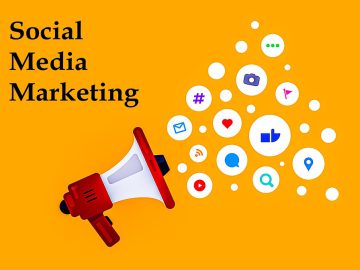
Transforming the healthcare landscape with AI marketing
The healthcare landscape has transformed dramatically over the last four years.
Eighty-two percent of US consumers now consider wellness a top or important priority in their everyday lives. According to a recent study, 37% of adults sought alternative treatments, such as acupuncture, yoga and specialized diagnostic testing—a sharp rise from just 19% two decades ago. The report also shows that almost 50% of Americans use complementary health approaches for pain management. Technological advancements, patient expectations and unprecedented global events, such as the COVID-19 pandemic, drive this trend.
This is all good news for doctors of chiropractic. There is one caveat—you must know how to reach these newly health-conscious people and let them know you can help them.
The marketing dilemma
Marketing takes time and expertise, something you don’t always have. In this evolving environment, being found online has become more important than ever. With 77% of patients using online searches to find healthcare providers, having a strong digital presence is no longer optional. However, building and maintaining this presence can be overwhelming for many DCs, especially those without technical expertise or the time to create content.
This is where artificial intelligence (AI) steps in, offering powerful tools to simplify and enhance your practice’s online visibility and patient engagement.
How AI marketing can transform your marketing strategy
AI tools took off about a year ago and the field is evolving at breakneck speed. There are many US-based tools you can choose from, such as ChatGPT, Jasper and Claude.ai.
AI is simply a tool designed to analyze data and perform tasks efficiently. However, it does need specific, intelligently worded instructions to perform. Have you heard the phrase “garbage in, garbage out”? You need to give AI tools really good instructions, or prompts, to get good results.
The tools are fairly simple to use. The trick is knowing what to use them for and how to craft the prompts required to give the tools instructions.
Here are some of the areas of marketing that AI tools can help you with:
Audience. You need to identify a narrow, specific niche. Yes, 50% of Americans are health-conscious and use alternative therapies. But that’s a very crowded market. You will be competing with every other holistic practitioner.
Discovering your niche and your audience is a vital element of successful marketing. Given the correct input, an AI tool such as ChatGPT or Claude can analyze data from your existing patient base to identify patterns, such as common demographics, geographic areas and health concerns.
Traffic. Once you know your audience and have a clear picture of who you are marketing to, you need to know where to find them online and how to attract them. AI tools can discover where they spend time online, what websites they visit and the type of content they respond to. This helps you improve your online visibility and locate the people actively looking for what you offer.
Leads. You need a constant flow of people to get new patients and grow your practice. AI tools can be useful in this area, boosting the number of interested people who contact you for your services.
Authority. One of the cornerstones of online marketing. If your audience does not see you as a trustworthy expert in your field, they will go elsewhere. AI can help by pinpointing the right outlets where your content should be seen and offering insights into pitching your stories to media and podcasts.
Sales. AI tools can help refine your sales process, turning leads into loyal clients for greater revenue and growth.
The data you provide to the tools makes all the difference. This is one of the reasons that AI by itself will not replace people. Your results will depend on how well you understand how to use the AI tools and how to give them the data they need to give you the strategies and content you need.
Understand patient needs and pain points
AI tools can help you stay ahead of emerging patient concerns. For instance, by analyzing search trends, AI can identify that more people in your area are looking for relief from remote work-related neck pain. This insight allows you to tailor your services and marketing messages to address this specific issue.
Tools like ChatGPT, Claude or Jasper can generate patient surveys or website content that gather feedback and insights directly from your audience, giving you a deeper understanding of their priorities.
Create compelling messaging
Once you have identified the right audience and have very granular and specific information, AI can help craft personalized and engaging messages by analyzing what resonates with them.
For example, it can evaluate which email subject lines lead to higher open rates or what types of social media posts generate the most engagement.
Generate high-quality content
Content marketing is one of the most effective ways to establish credibility and attract new patients. However, producing consistent, high-quality content can be time-consuming. AI simplifies this process by generating:
Blog posts: Write informative articles, such as “Five tips for better posture” or “How chiropractic care can relieve chronic pain.”
Social media posts: Create engaging captions and images for platforms, such as Instagram or Facebook.
Newsletters: Develop regular updates to keep patients informed about your services and special offers.
For example, tools like Canva’s AI design assistant or ChatGPT can create original graphics and written content tailored to your practice’s branding and voice.
Improve patient engagement
AI-powered chatbots can enhance patient communication by answering common questions, scheduling appointments and sending reminders. These tools are available 24/7, ensuring patients feel supported outside office hours.
For example, a chatbot on your website could respond to queries like, “Do you accept insurance?” or “What are your hours?” This improves patient satisfaction and frees up your staff to focus on in-office tasks.
A practitioner’s success story
Jeffrey Werth, MS, NST-CM, a partner in Healing Tree Health in Michigan, struggled to get the practice visible online and attract new patients despite excellent reviews from existing clients. He integrated AI into their marketing strategy, analyzed patient data and niche markets and created messaging to attract new patients. With this insight, he:
Used AI tools to find the right audience
Created very targeted, high-quality content
Launched a targeted social media campaign offering free consultations
He saw a marked increase in new patient inquiries and a noticeable uptick in online engagement.
“In the three months since I implemented the AI strategy, our practice has grown,” says Werth. “We’re getting more and more inquiries from our website. We’re no longer having trouble getting known on the internet.”
Get started with AI marketing in your practice
If you’re new to AI marketing, start small. Identify one or two areas where it can make the biggest impact, such as increasing new patient leads, creating content or improving patient communication. Many AI tools offer free trials, allowing you to test their effectiveness without a major financial commitment.
Here are some beginner-friendly tools to consider:
ChatGPT for research, generating ideas and written content
Claude for research, strategies and content creation
Grammarly for professional content editing
Canva for creating eye-catching graphics
The future of chiropractic AI marketing
Incorporating AI marketing into your chiropractic practice isn’t about replacing human expertise, but enhancing it. The healthcare market has changed, and the DCs who adapt will thrive. Embrace AI as a tool to simplify your efforts and amplify your reach. With the right strategy, you’ll attract new patients and build lasting relationships that grow your practice.
Daniele G. Lattanzi is the CEO of Effective Practice Management™, a company dedicated to helping holistic practitioners build and scale viable practices and achieve their next level of success and financial freedom. He designed the ATLAS Blueprint™ to help DCs and other healthcare practitioners learn to use AI tools effectively. Lattanzi also leads Health Improvement Systems Inc. as board chairman and CEO. The company encompasses a range of brands focused on holistic health, including practitioner training (Ulan Nutritional Systems Inc.), e-commerce for wellness professionals and comprehensive, holistic health certifications.






